Meet the team
The RESOUND Project is made possible by a diverse and talented team of researchers, scholars, and technical experts, each contributing their unique skills and expertise to unravel the mysteries of Hispanic chant.
IP
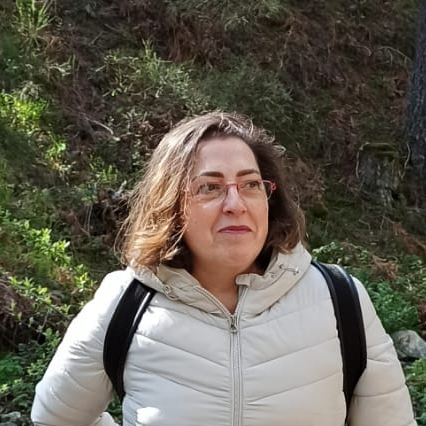
Carmen Julia Gutiérrez González
Professor of Musicology
BIO
Chair Professor of Musicology at the Universidad Complutense de Madrid, where she has taught since 1997 and where she has held multiple university management positions. She has been a visiting researcher at universities such as Basel, Erlangen, Würzburg and Bristol. Her research and publications focus on medieval music, highlighting her interdisciplinary approach. She has supervised numerous academic works on medieval music, including nine doctoral thesis. Since 2006 she has been IP of research projects of the Government of Spain and currently directs three competitive projects, among which an Advanced Grant from the European Research Council stands out. She has founded the Complutense Early Music Research Group and is the director of the SEMM database (Spanish Early Music Manuscripts).
Research Coordinators
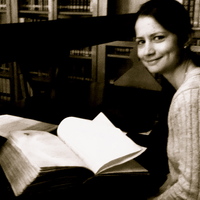
Raquel Rojo Carrillo
Senior Musicologist, WP1 Coordinator
BIO
She is a Senior Musicologist at the ERC-funded project RESOUND and Honorary Research Associate at the University of Bristol, where she completed a PhD in 2017. Prior to her current position, she held a Leverhulme Early Career Research Fellowship at the University of Cambridge’s Faculty of Music and was a member of the research project ‘El canto llano en la época de la polifonía’ at Universidad Complutense de Madrid.
Her research focuses on the plainchant repertoires of medieval Iberia by considering not only musicological but also palaeographical and liturgical variables. She currently serves as Coordinator of Hispanic rite chant sources in the Spanish Early Music Manuscripts Database, which is part of the Cantus Index network. She has also co-created neume taxonomies of several medieval manuscripts for the Chant Editing and Analysis Program, and is one of the co-authors of the digital exhibition Medieval Fragments: Old Hispanic Chant Vestiges.
Her most recent publications include the article ‘From the Hispanic rite to the Franco-Roman rite: Musical Notation and Liturgical Change’, Journal of Medieval Iberian Studies 17.1 (Spring 2025); the book Text, Liturgy, and Music in the Hispanic Rite: The Vespertinus Genre (Oxford University Press, 2021); and several co-authored chapters in Understanding the Old Hispanic Office: Text, Melodies, and Devotion in Early Medieval Iberia (Cambridge University Press, 2022). In addition to her work as a researcher, Raquel has taught or co-taught several courses at the History and Music Departments of the University of Bristol, and at the University of Cambridge’s Faculty of Music, including, ‘Inside Medieval Music’, ‘Introduction to Medieval History’, ‘Music from Spain’, ‘Readings in Musicology’ and ‘Research Skills for Medievalists’.

Francisco M. Camas
WP2 Coordinator
BIO
He has been involved in RESOUND since the inception of the project, shaping the computational methods aimed at recovering the ancient sounds of the Hispanic repertory. He has also played a key role in defining the project’s foundational hypotheses. Dr. Camas heads the Melomics and Chant Recovery Lab, a core component of RESOUND, where he is pioneering an innovative pipeline that applies concepts and tools from Genomics to Middle Age liturgical chant. Each chant is treated as a cultural meme, paralleling the concept of a gene in Life Sciences —hence Melomics, a “Genomics of melodies”.
Original thoughts come at a cost! This groundbreaking approach is the product of a non-linear professional journey full of unexpected turns and creative exploration. Dr. Camas holds a PhD in Physics (Universidad Complutense de Madrid), specializing in the interdisciplinary fields of Systems and Synthetic Biology. He has held postdoctoral positions at the Massachusetts Institute of Technology (working on the Genomics of the Microbiome) and spent years teaching Harmony—with a special focus on the rediscovered Neapolitan partimento school—and related disciplines at Music Conservatories. This eclectic background offers a unique perspective to “connect the dots” between seemingly distant fields of knowledge in long-term projects, from freelance initiatives like The Totmundo Project (focused on the optical recognition of Hispanic neumes) to well-funded endeavors such as RESOUND and its immediate technological predecessor, SONHIS.
Dr. Camas’s creativity extends to playful yet profound experiments, including The Stellar Choir (transforming starlight into sound), the first melogram score of the Tarzan Yell, and the microtonal transcription of Flamenco music —a natural fit for someone born in Cádiz, Andalusia, in southern Spain.
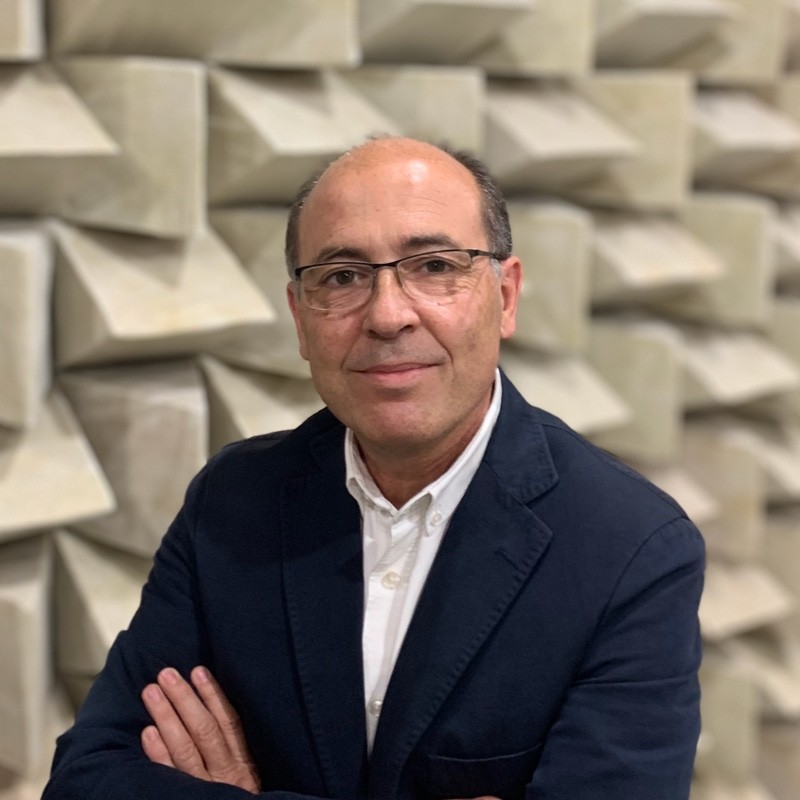
Antonio Pedrero González
Acoustics Professor, WP3 Coordinator
BIO
He is a Professor in the Department of Signal Theory and Communications at the Universidad Politécnica de Madrid, with extensive experience in architectural acoustics, acoustic metrology, and environmental acoustics.
In recent years, he have specialized in applying virtual acoustic reality technologies to restore the sonic heritage of historical buildings. His work in acoustic metrology includes publications on the precision and uncertainty of different acoustic measurement methods. In the field of environmental acoustics, his publications focus on studies based on in situ measurements and the perceptual evaluation of noise.
He have served as the Technical Director of the Acoustics and Vibrations Laboratory (Arquilav) at UPM’s School of Architecture since its founding.
Professor Pedrero Gonzalez is a key contributor to the RESOUND project, where he leads the technical coordination of aural reconstructions of virtual spaces.
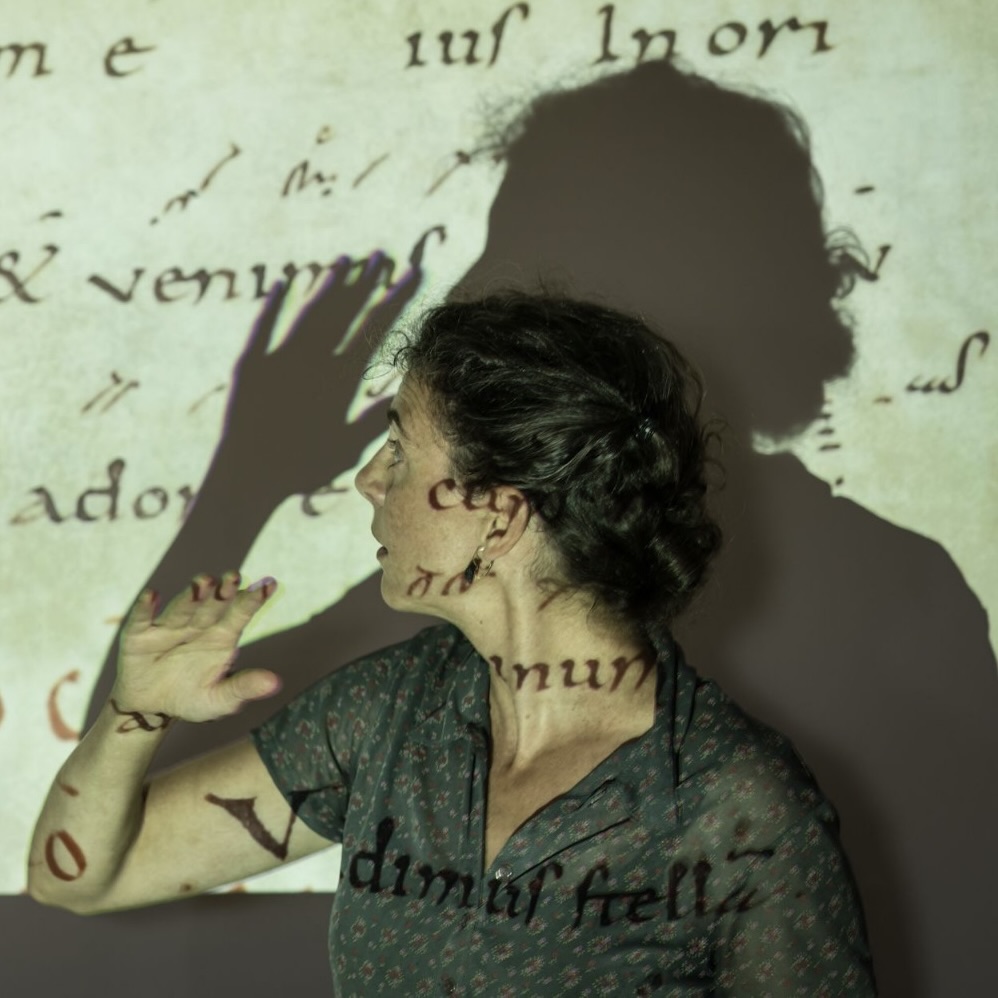
Paloma Gutiérrez del Arroyo
WP4 Coordinator
BIO
Singer specialized in occidental medieval repertoires (pre-1500), trained mainly in France, but also in Switzerland, Italy, and Spain, by renowned performers and researchers in the field (Katarina Livljanic, Benjamin Bagby, Raphaël Picazos, Isabelle Ragnard, Dominique Vellard, Claudia Caffagni, Catherine Schroeder, Brigitte Lesne, Gérard Geay, Lucien Kandel, Susan Rankin, Anne Delafosse, Anne Marie Lablaude, Juan Carlos Asensio, Marie Noël Colette…). Prior to the study and interpretation of the medieval repertoires, she pursued a scientific career (Chemistry Degree and Biophysics PhD).
She’s co-founded various ensembles: Puy de sons d´autrefois (2006-2013), Ensemble Oiet (2011-2017), Ensemble Cantaderas (2015–…), and project EVOCA (Experimentación de la Vocalidad y la Oralidad del Canto Antiguo, 2021–…), where, along with three other singers, they explore the boundaries of oral tradition in both monodic and polyphonic chant. She performs or has performed in duos with Catherine Schroeder, Bill Cooley, and Manuel Vilas, and in a trio with Manuel Vilas and Efrén López. She also collaborated with other ensembles in Spain, France, and Italy, including performances with actors and contemporary music premieres
Since 2011, she has developed a pedagogical activity, giving introduction or specialization courses, masterclasses, seminars, and ateliers about the interpretation of Medieval repertoires, for both adults and children, in universities, conservatories, libraries, foundations, and broadcasts across France, Switzerland, Italy, and Spain. In 2016, she founded a new school of Medieval and Oral Tradition Music in Madrid: Escuela de Música Medieval y de Tradición Oral at the Institución Libre de Enseñanza (foundation Francisco Giner de los Ríos), directing the annual cycle of conferences, workshops, and a thematic concert titled “Los sonidos de otros tiempos, hoy.”
Her research focuses on the use of orality for performing and transmitting Medieval repertoires. Memory, analysis, live construction procedures and composition systems, temperaments, vocality, notation’s codifying interests and limits, and old languages’ pronunciation and translation are compulsory questions in her practice.
When meeting Carmen Julia Gutiérrez, in 2017, Paloma began to envision an exciting collaboration to explore the gestural subtleties held by Hispanic neumes, which seem more nuanced than any other family of neumes she interprets. RESOUND was the chance to make this dream come true, integrating EVOCA Project into the adventure.
For more information visit her full BIO.
Researchers
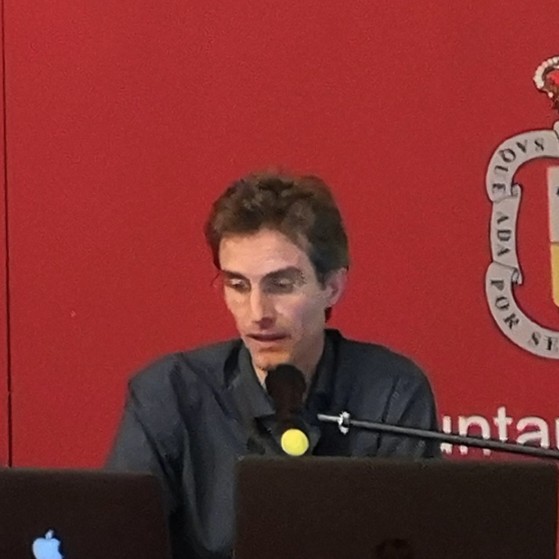
David Andres Fernández
Senior Lecturer
BIO
Dr David Andrés Fernández is a Senior Lecturer at the Complutense University of Madrid (Musicology Dpt), a Honorary Senior Research Associate at the University of Bristol (Music Dpt), and Member of the Cantus Planus Study Group’s Advisory Board (International Musicological Society). Apart from being a senior researcher in the Resound ERC-project, he is also the PI of the UCM partner research at the Repertorium EU-Horizon project, and a research collaborator at the Digital and Analysis of Chant Transmission (DACT), the three funded with 2.5 million EUR each. He is Principal Investigator of the Corpus Processionalium Hispanarum research project. He is author of Mapping Processions (The Institute of Mediavel Music, 2018) and co-author with Alejandro Vera of Los cantorales de la Catedral de Lima (Sociedad Española de Musicología, 2022, awarded with the national prize). His research interests focus on medieval and early Modern chant in the Iberian Peninsula, and on choirbooks and chant sources in Latin America in colonial times. His interest for the Old Hispanic rite and chant is processional practices.
He led, with Emma Hornby and Carmen Julia Gutiérrez, a Leverhulme Trust research project on processions in Early medieval Iberia, and coedited, with Emma Hornby, a critical cluster on this topic for the Journal of Medieval Iberian Studies. He is crazy about processional chant and Spanish choirbooks!!
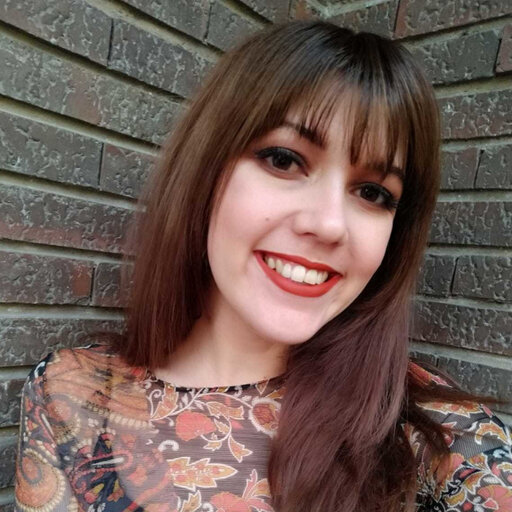
María Larrosa Navarro
BIO
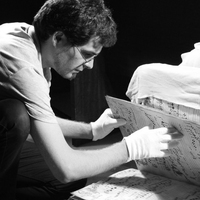
David Catalunya Marin
BIO
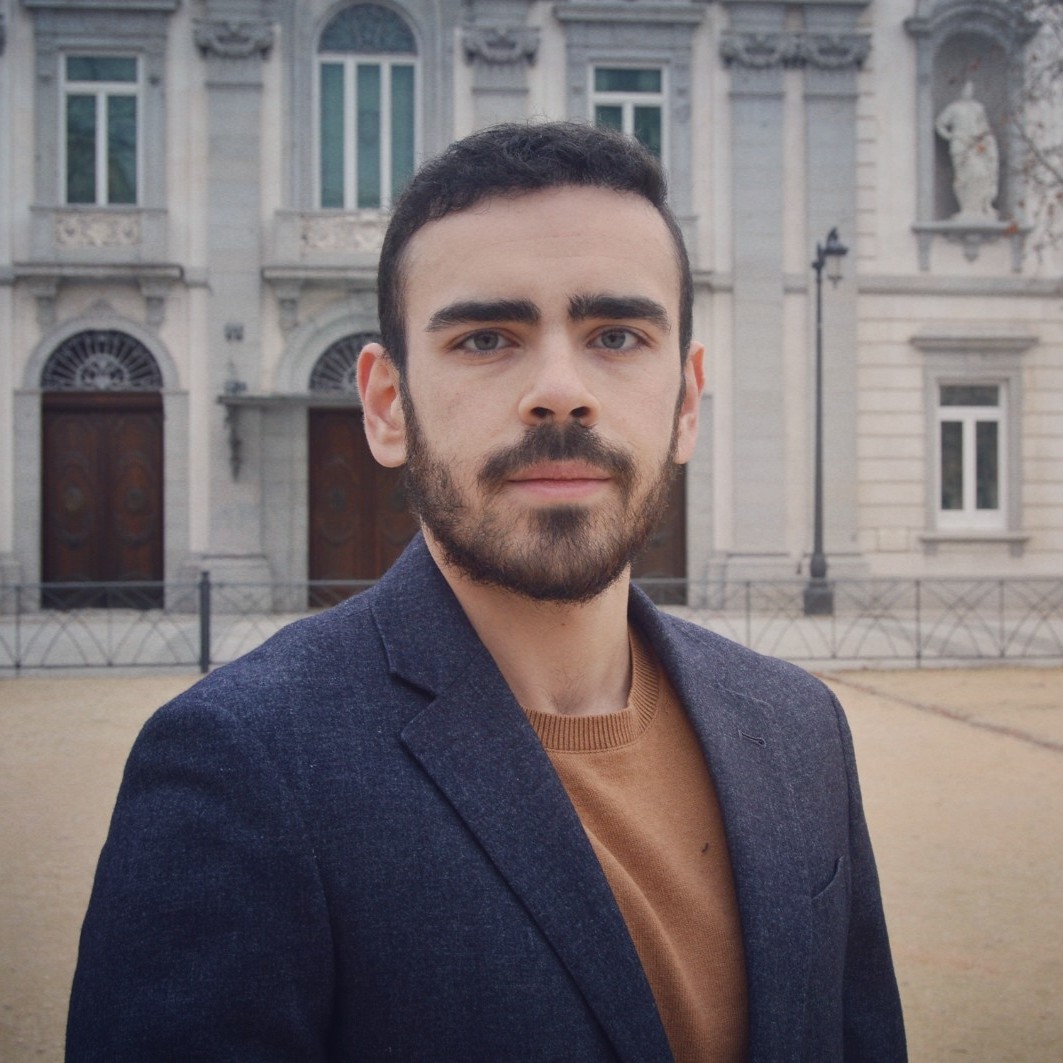
David Santana Cañas
BIO
David Santana Cañas (Bilbao, 1996) is a musicologist who earned his doctorate from the Complutense University of Madrid in 2024 with a dissertation titled: “The Toledan Sources of Hispanic Chant.” He has dedicated most of his academic and research career to the study of these southern and late sources of the Hispanic rite. In his doctoral thesis, he investigated the entire corpus of Toledan sources in aspects as varied as: the historical context, codicology, textual paleography, musical paleography, and the study of melodic contours and dialects.
During his doctorate, he received funding from the Ministry of Universities through the FPU (University Teacher Training) grant, training as a professor in the Musicology and Art History degrees at the Complutense University of Madrid in subjects such as: Musical Notation and Editing, Introduction to Musicology, Musical Dissemination and Criticism, and History of Music I.
He has been a member of the SEMM (Spanish Early Music Manuscripts Database) project since 2019 and is currently working on the RESOUND project, helping with tasks related to the cataloging of sources of Hispanic chant.
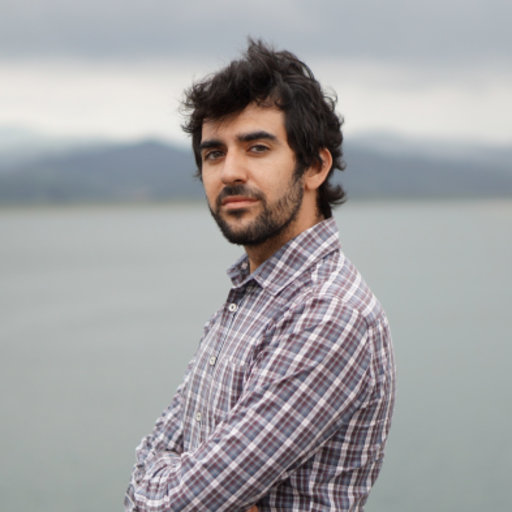
Daniel de la Prida Caballero
BIO
Dr. Daniel de la Prida is a PhD Assistant Professor and researcher specializing in acoustics, psychoacoustics, and signal processing. He holds a BSc in Audiovisual Systems Engineering (UC3M, 2013), an MSc in Acoustic Engineering and Vibrations (UVA/ULE, 2014, with Honors), and a PhD in Psychoacoustics (UPM, 2021, Cum Laude, European Mention). His research focuses on listening tests in sound insulation, room acoustics, and soundscapes, integrating psychoacoustic indicators with subjective perception.
Dr. de la Prida has published 15 JCR-indexed papers (8 Q1, 6 as first author), 3 book chapters, and 30 conference papers, including 2 keynotes. He has participated in European and national research projects, such as BODYinTRANSIT (ERC), DYNA-SOUND, JAMAICAM, TOP Heritage-CM, and CAVERA. In these projects Daniel has served as member of the researcher team mainly for psychoacoustics, but also for room and building acoustics measurements as well as for signal processing. He is also the principal inventor of a patented railway wheel sound absorption system.
His international experience includes a research stay in Austria (Vatter Acoustic Technologies, 2012-2013) and visits to KU Leuven University (Belgium) and RWTH Aachen University (Germany) for perceptual acoustics research. Currently, he is a PhD Assistant Professor at UPM, teaching acoustics and signal processing, after 6 years of teaching at UC3M.
Beyond academia, he has worked in embedded hardware for acoustic measurement (Proceso Digital de Audio S.L., 2014-2016) and research at Arquilav (UPM, 2016-2021). Since 2019, he has been the Spanish representative for YAN (European Acoustics Association), and since 2023, a board member of the Spanish Acoustical Society (SEA), also serving as Manager of the Journal of Acoustics of SEA.
PhD Students
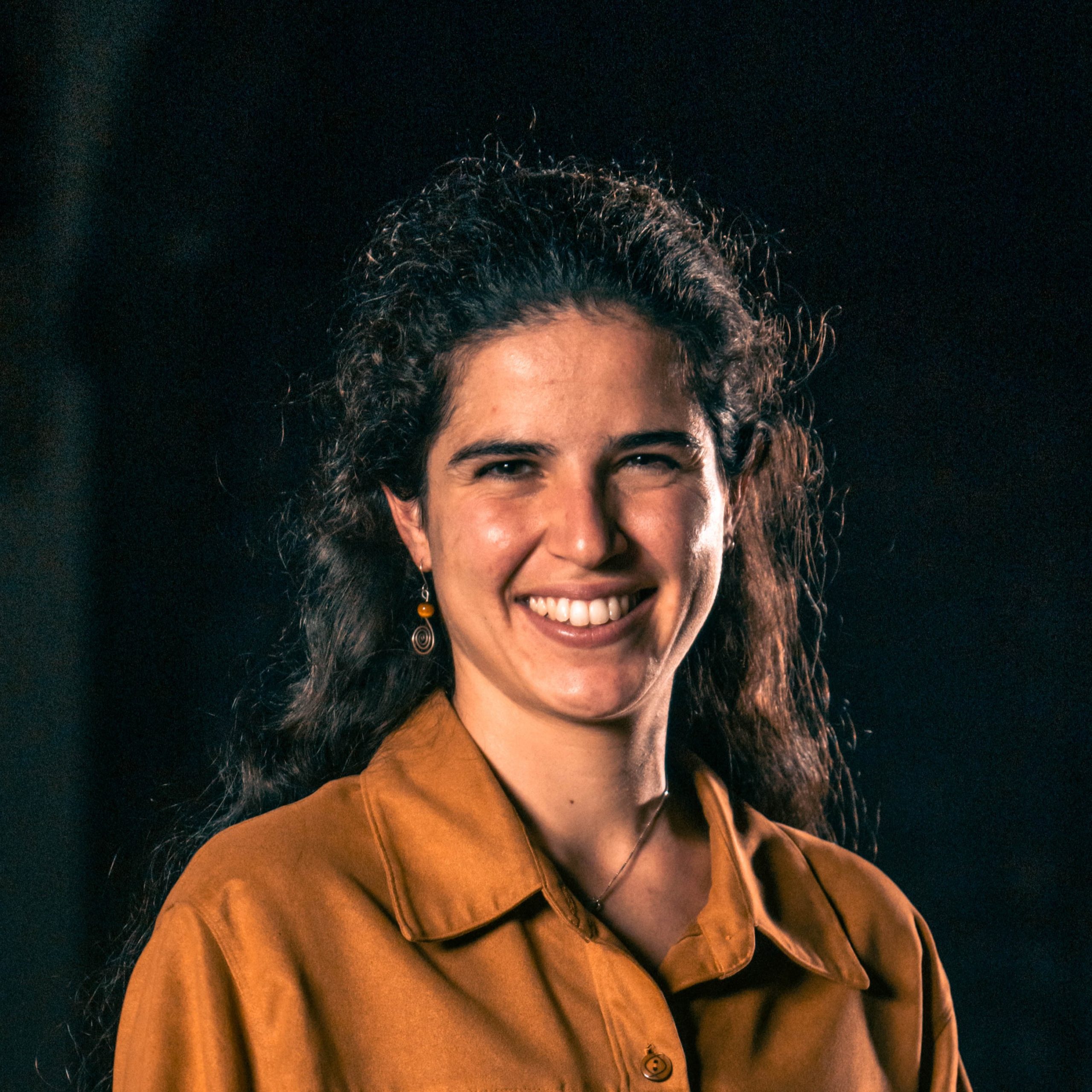
Lívia Camprubí Bueno
BIO
Violinist and researcher fascinated by historical repertoires, she participates in various projects playing baroque violin and viola, as well as rebec and vielle, medieval instruments. She is pursuing her doctoral thesis on the responsorial chants of the Antiphonary of León at the Complutense University of Madrid, within the ERC Resound project, under the direction of Carmen Julia Gutiérrez and Francisco Camas and funded by the predoctoral grant of the Community of Madrid. She has been part of the research team in the area of medieval music at the UCM since 2022.
Since 2016, she has been part of Entrebescant, a group specializing in medieval and traditional Iberian music that has taken her to national and international stages. In 2022, she founded Arcadisco, an interdisciplinary project focused on the insertion of early and traditional music in leisure environments. Until 2021, she completed her higher studies and master’s degree in baroque violin with Professor Lina Tur Bonet.
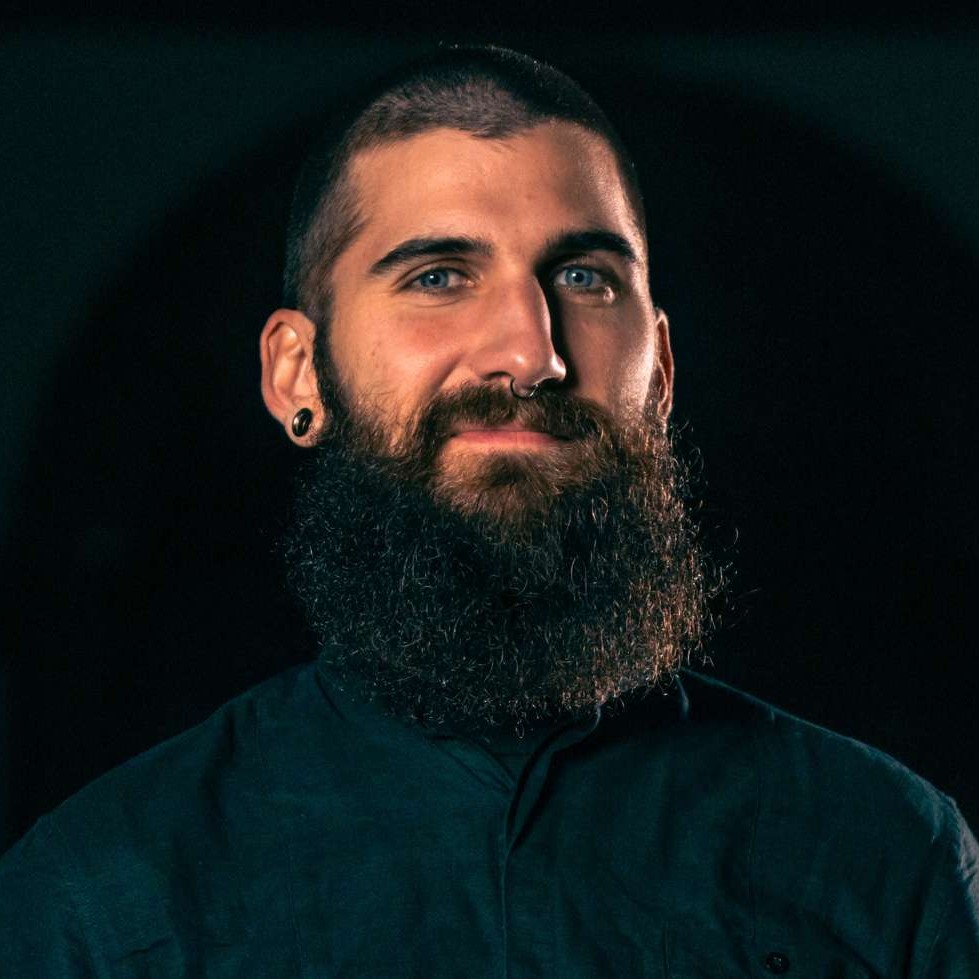
Pablo Fernández Cantalapiedra
BIO
Pablo F. Cantalapiedra (Madrid, 1993) is a musicologist and performer specializing in medieval repertoire. His profile combines an academic career with a significant background as a percussionist focused on early music. He also directs the vocal ensemble Timpanum, which specializes in plainchant and polyphony between the 14th and 16th centuries, and is a member of Entrebescant, with whom he performs medieval and traditional Iberian music. As a musicologist, he has taught at the European University of Madrid, the Autonomous University of Madrid, and the Complutense University of Madrid, in addition to participating in international conferences and specialized journals with communications and publications; as a performer, he has played or sung in the main early music festivals in our country, even touring countries such as Portugal, France, Germany, or Israel. He has also provided musicological advice and participated as a performer in recordings of previously unreleased music.
He is currently enjoying a predoctoral contract from the Community of Madrid under the direction of Doctors Carmen Julia Gutiérrez and Francisco Camas. Since 2022, he has been the project manager of the SEMM (Spanish Early Music Manuscripts) database, one of the main tools of Resound and one of its major contributions to research.
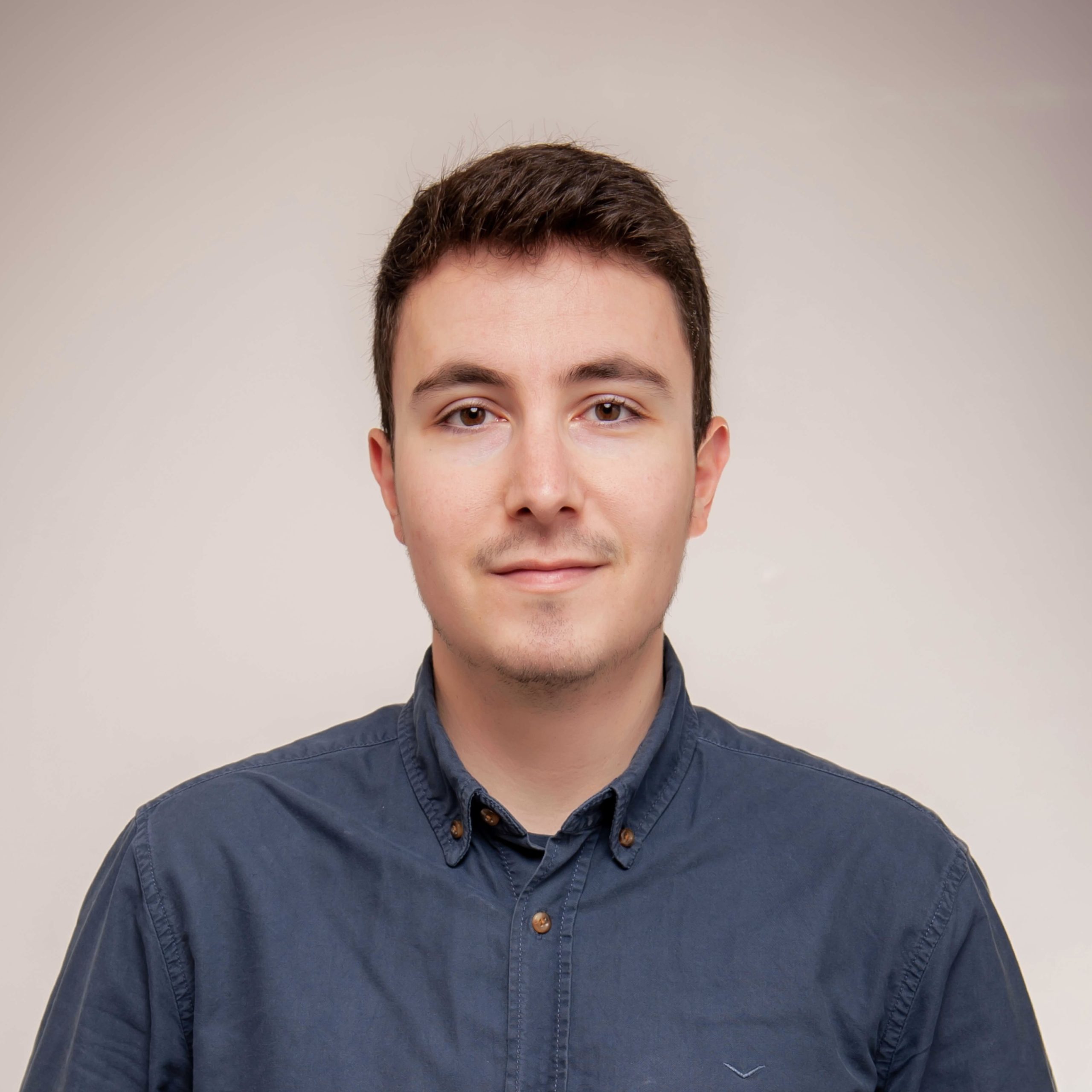
Antonio Olea Baeza
BIO
Antonio Olea Baeza (Madrid, 1997) is a musicologist with a degree from the Universidad Complutense de Madrid, where he also holds a Master’s degree in Spanish and Hispano-American Music. In the performance field, he holds a professional conservatory degree in Music with a specialization in Classical Guitar. He is currently a PhD candidate in the Department of Musicology at the Complutense University of Madrid, where he is completing his doctoral dissertation, focusing on the Riojan Manuscripts of Hispanic chant and on the canticles antiphons of the manuscript BL51.
His PhD thesis is supervised by Professors Dr. Carmen Julia Gutiérrez and Dr. Mª Raquel Rojo Carrillo. Recently, he completed a predoctoral research stay at the University of Bristol under the supervision of Professor Dr. Emma Hornby, working with her research team on the Old Hispanic Office Project.
Antonio Olea has participated in several research projects through various research contracts, including SEMM, SOHNIS, and currently RESOUND, with significant contributions to SEMM (Spanish Early Music Manuscripts Database) and Cantus Index databases.
His research has led him to participate in various academic conferences, including the XI Congress of the Spanish Musicological Society (SEdeM 2024), the UCM Seminar on Early Music Research (SIMA 2024), or the 6th edition of the “PhDay” at the Complutense University of Madrid (Faculty of Geography and History, 2022), where he was awarded first prize for his presentation.
In addition to his research work, he currently teaches at the International University of Valencia, where he lectures on two courses in the Bachelor’s degree in Musicology: Musical Notation and Editorial Techniques I and Ancient and Medieval Music.
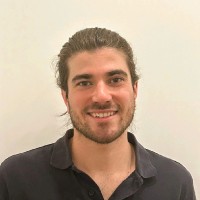
Luis Carrero Muriel
BIO
Luis Carrero Muriel (Huelva, 2000) is a biomedical engineer who earned
his degree from the Polytechnic University of Valencia, where he
specialized in the application of engineering principles to healthcare. He further enhanced his professional profile by completing a Master’s
degree in Acoustic Engineering in Madrid, solidifying his interest in the science of sound.
Currently, he is employed at Arquilav, the research group of the Polytechnic University of Madrid, where he contributes to innovative projects in the field of acoustics. He has recently embarked on his PhD
studies, focusing on acoustic texture with the goal of exploring the interplay between sound components and their influence on auditory perception.
His research endeavors have been recognized at notable events, including his participation in the Acoustics Congress 2024 in Faro de Tecniacustica, where he presented significant advancements in his field.
Assistant Researchers
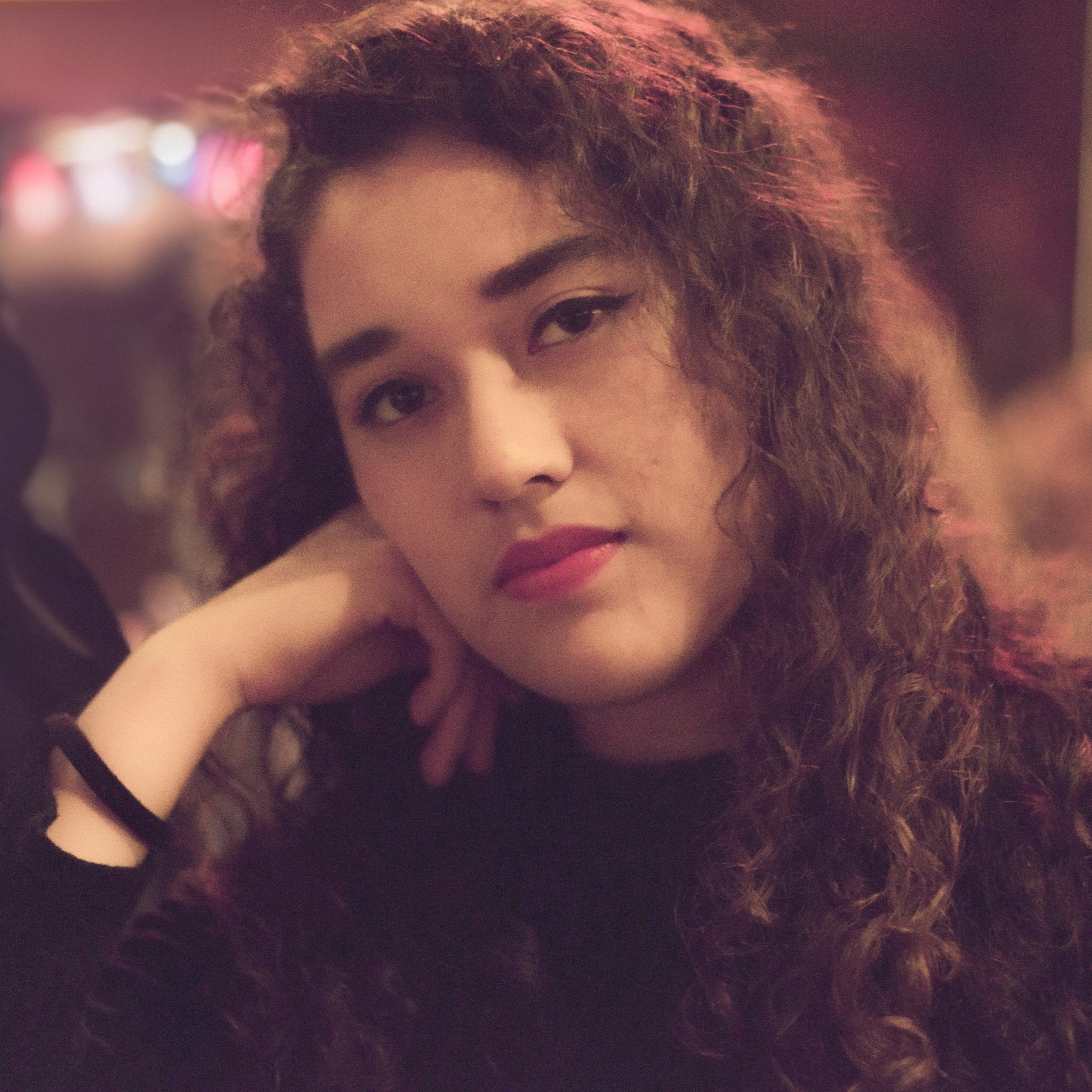
Nubia Andrea Montes García
BIO
Nubia Montes is a Mexican singer who discovered her passion for medieval music after graduating in classical singing in 2021. During her studies, she also trained in cello and piano, enriching her understanding of musical expression and interpretation.
Her journey into early music began with a workshop by Paloma Gutiérrez del Arroyo, inspiring her to explore medieval repertoires. Since 2022, she has been studying full-time under her guidance at the Escuela de Música Medieval y de Tradición Oral in Madrid, focusing on oral transmission and manuscript study.
Following this path, she has further enhanced her training by attending intensive courses led by extraordinary and inspiring specialists, including Brigitte Lesne, Catherine Schroeder, Katarina Livljanić, Anne Delafosse, Ensemble Cantaderas, with practice experiences spanning Spain, France, and Italy.
Currently, she is pursuing a Master’s degree in Patrimonio Musical at UNIA-UGR-UniOvi, while contributing as a research assistant in the WP1 team of the Resound project, aiming to understand, preserve, and share this rich heritage with contemporary audiences.
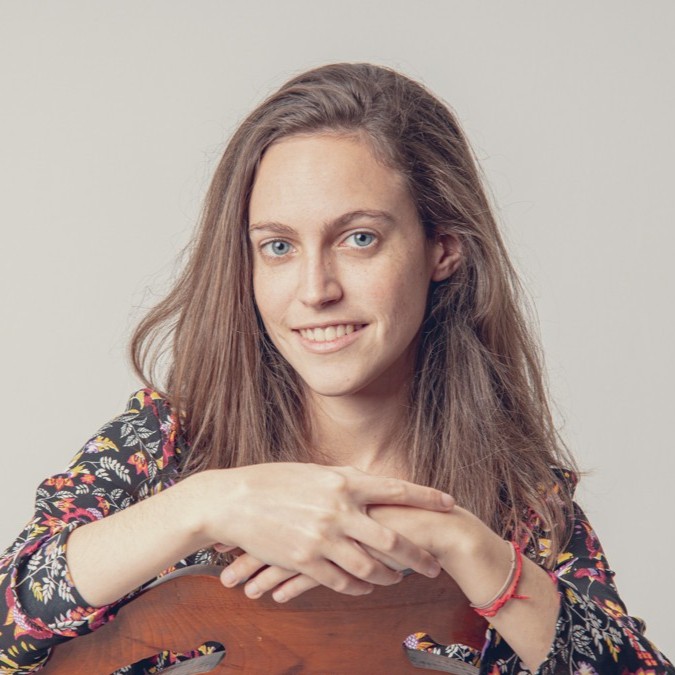
Laura Parker San José
BIO
Laura Parker is a musicologist, with a degree in History and Science of Music from the University of Oviedo, and a cellist, completing her performance training in Madrid. She is currently in the final phase of her Master’s degree in Spanish and Hispano-American Music at the Complutense University of Madrid. She has a versatile career that includes teaching, performance, and research. She has participated in the IV Research Conference on Musical Production and in the International Congress on Women and Musical Leadership, both held at the Faculty of Geography and History of the aforementioned Madrid university in 2024. Her research interests focus on the compositional aesthetics and interpretative analysis of Romantic and Post-Romantic music, but in her recent academic years she has expanded to other areas of study, especially gender theory applied not only to academic music, but also to other musical genres. Her participation in the Resound project consists of carrying out expert review tasks of optical recognition results in medieval manuscripts, especially of Hispanic pneumatic notation and the Visigothic script of their texts.
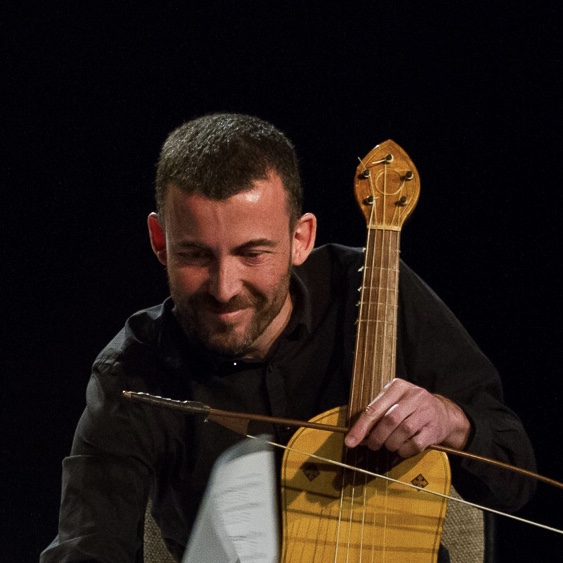
Francisco Javier Bonito Gadella
BIO
Francisco Javier Bonito Gadella (Madrid, 1973) holds a BSc in Architectural Technology from the Universidad Politécnica de Madrid, a BSc (Hons) in Building Engineering from the Universidad Camilo José Cela, a Master of Arts in Spanish and Hispano-American Music from the Universidad Complutense de Madrid, and a Professional Diploma in Music, specialising in Viola da Gamba, from the Conservatorio Profesional de Música Arturo Soria.
For several years, he combined a career in the construction industry with his artistic pursuits. This included developing his own portfolio of paintings, working as an illustrator for various publications, and participating in artist’s book fairs. Concurrently, he cultivated his other significant passion: music. In this capacity, he has performed as an instrumentalist and singer of early music with a variety of ensembles, participating in numerous concerts across Spain, Italy, France, and Portugal.
Since 2017, he has specialised in the field of musicology with a focus on the medieval repertoire. He currently serves as a Research Technician for the ‘Spanish Early Music Manuscripts’ project, following his research on the dissemination of the office in honour of Santo Tomás de Canterbury in Spain.
Singers
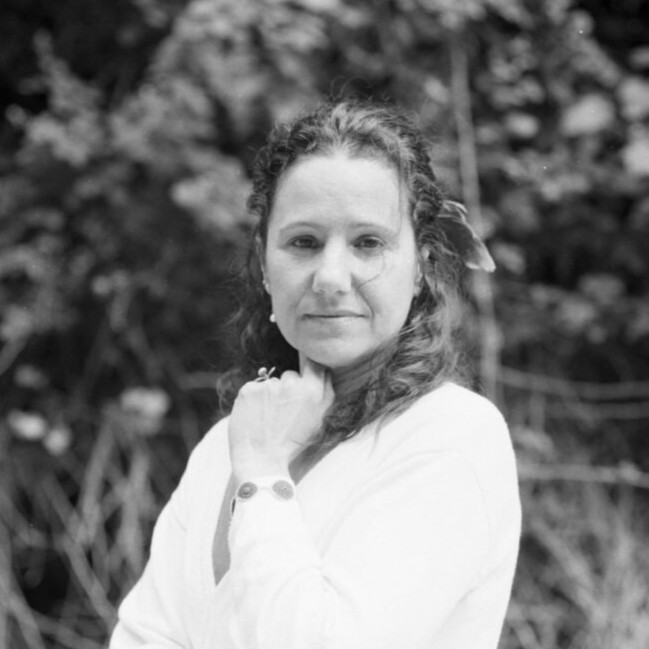
Ana Isabel Arnaz de Hoyos
BIO
Ana Arnaz is a soprano specializing in early and traditional music. Her training includes studies at the Conservatorio del Liceo in Barcelona and the Schola Cantorum in Basel, Switzerland. She has a diverse career as a performer, teacher, and researcher, dedicated to exploring and reviving lesser-known musical traditions. Arnaz is the founder of several ensembles, including Cantaderas, Vox Suavis, and Ex Luce color, through which she explores various facets of vocal music, from medieval chant to early modern polyphony and traditional Iberian song. Her performance experience spans a wide range of repertoire and styles, reflecting her deep interest in historical performance practice and her commitment to bringing these musical treasures to contemporary audiences.
Beyond performing, Arnaz is passionate about music education and research. She currently teaches at the Music School of the Schola Cantorum Basiliensis and the Cistercian Monastery of Hauterive in Fribourg, Switzerland, and has been a guest teacher at the “Escuela de Música medieval y de tradición oral” in Madrid. Her research interests focus on Spanish oral traditions, “silent music,” and the traditional music of Castilla la Vieja. These explorations inform her performances and contribute to a deeper understanding of the rich musical heritage of Spain. Her discography includes recordings such as “Il primo libro de Francesca Caccini,” “La voz del olvido,” “As festas do Anno,” and “Olvidadas,” which showcase her vocal artistry and her commitment to preserving and sharing these important musical works.
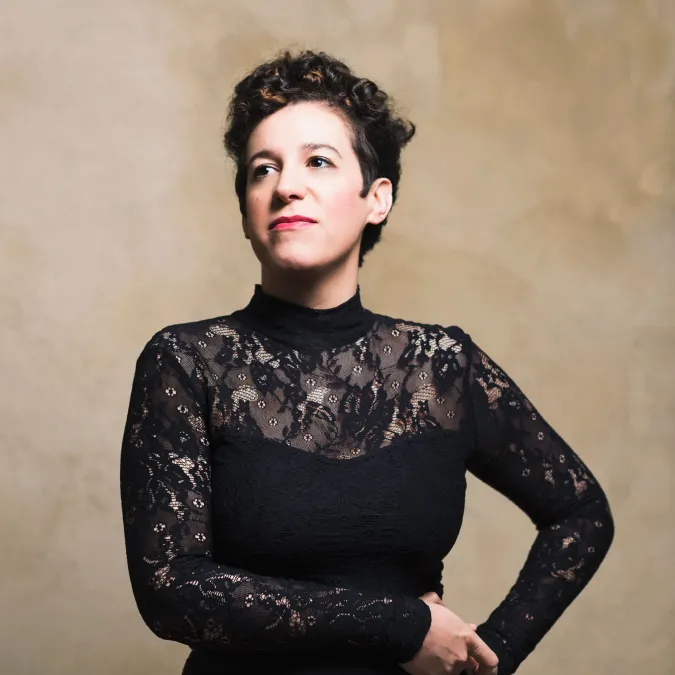
Èlia Casanova Martí
BIO
Èlia is a renowned soprano specializing in early music.
She has performed extensively throughout the world, gracing prestigious venues from the Palau de la Música Catalana to the Walt Disney Concert Hall. Èlia is passionate about rediscovering forgotten musical treasures, and actively participates in research projects that bring these works to light. She is a sought-after soloist, collaborating with leading ensembles like La Capella Reial de Catalunya and Capella de Ministrers. Èlia’s dedication to early music has earned her numerous awards, including the Cecil Drew Oratorio Prize and the Carles Santos Prize for her album L’Universo sulla pelle.
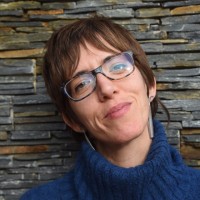
Amparo Maiques Fernández
BIO
Project Manager
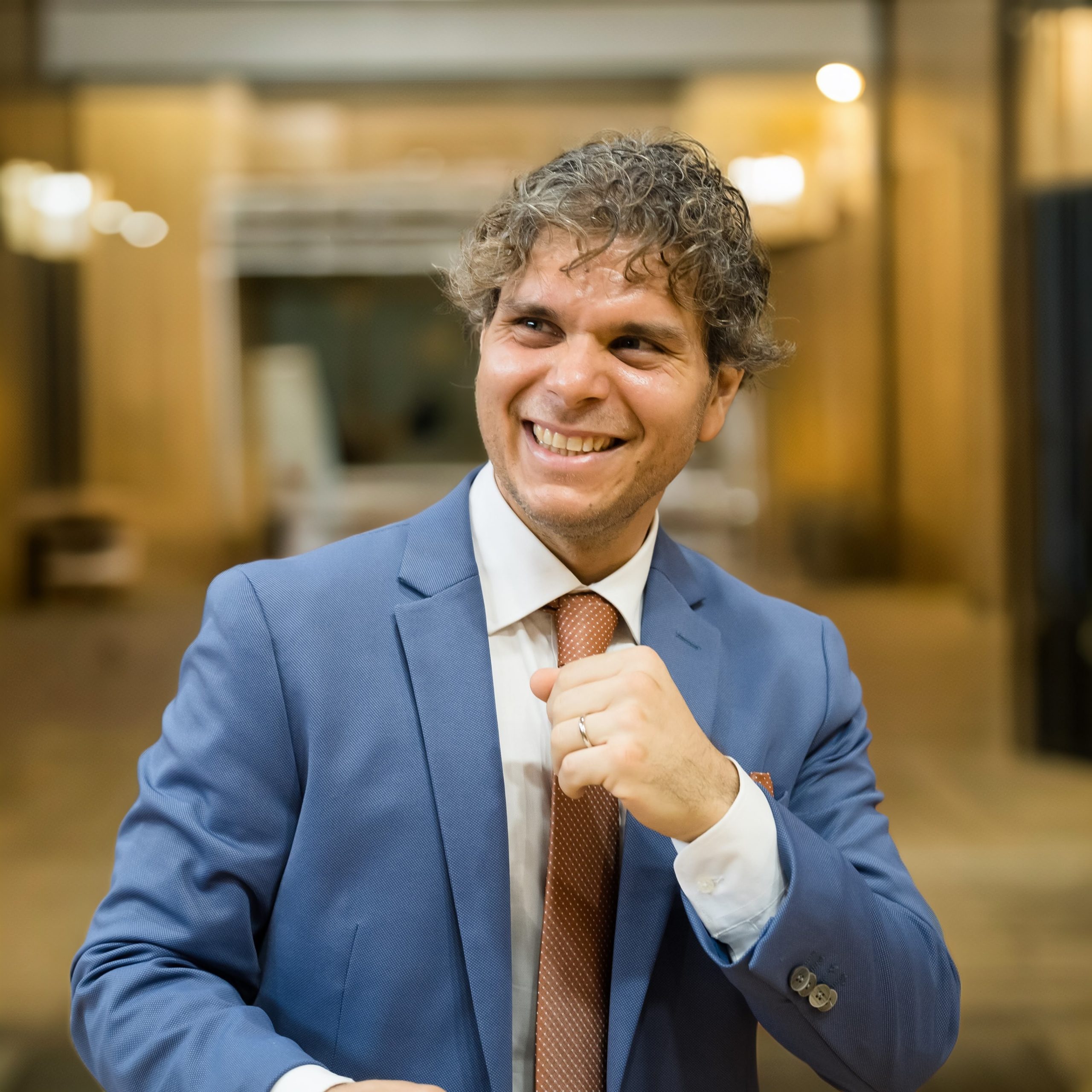
Esteban Etcheverry
BIO
Esteban Etcheverry is a research administrator and project manager specializing in academic operations, research funding, and institutional project management. His work has focused on optimizing research environments, managing European Research Council-funded projects, and supporting interdisciplinary collaboration within academic institutions.
Etcheverry holds a Master’s in Cultural Management from Universidad Complutense de Madrid (Spain) and a Bachelor’s in Music from Universidad Nacional de La Plata (Argentina). He has extensive experience in research coordination, IT-driven process optimization, and project execution across institutions in Argentina, Portugal, Spain, and the U.S, bringing a global perspective to his work.
Beyond his professional career, Etcheverry is a choir conductor and musician, passionate about historical and contemporary vocal performance. He has directed multiple ensembles and collaborated on artistic projects that bridge music, culture, and research. His interests extend to fitness, outdoor activities, and culinary exploration, reflecting his dynamic and multifaceted approach to both work and life.
Advisory Committee
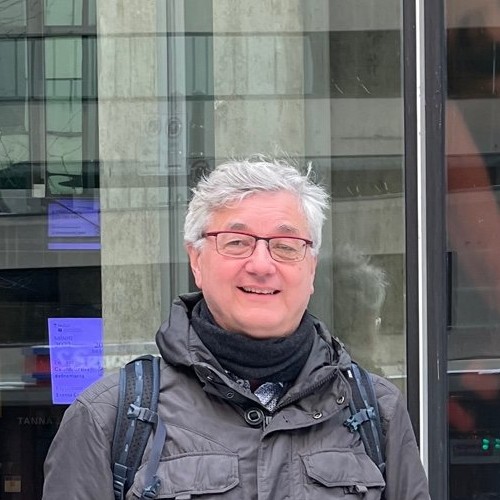
Ichiro Fujinaga
McGill University
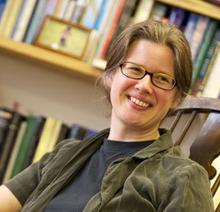
Emma Hornby
University of Bristol
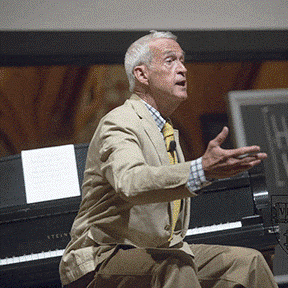
Thomas Forrest Kelly
Hardvard University
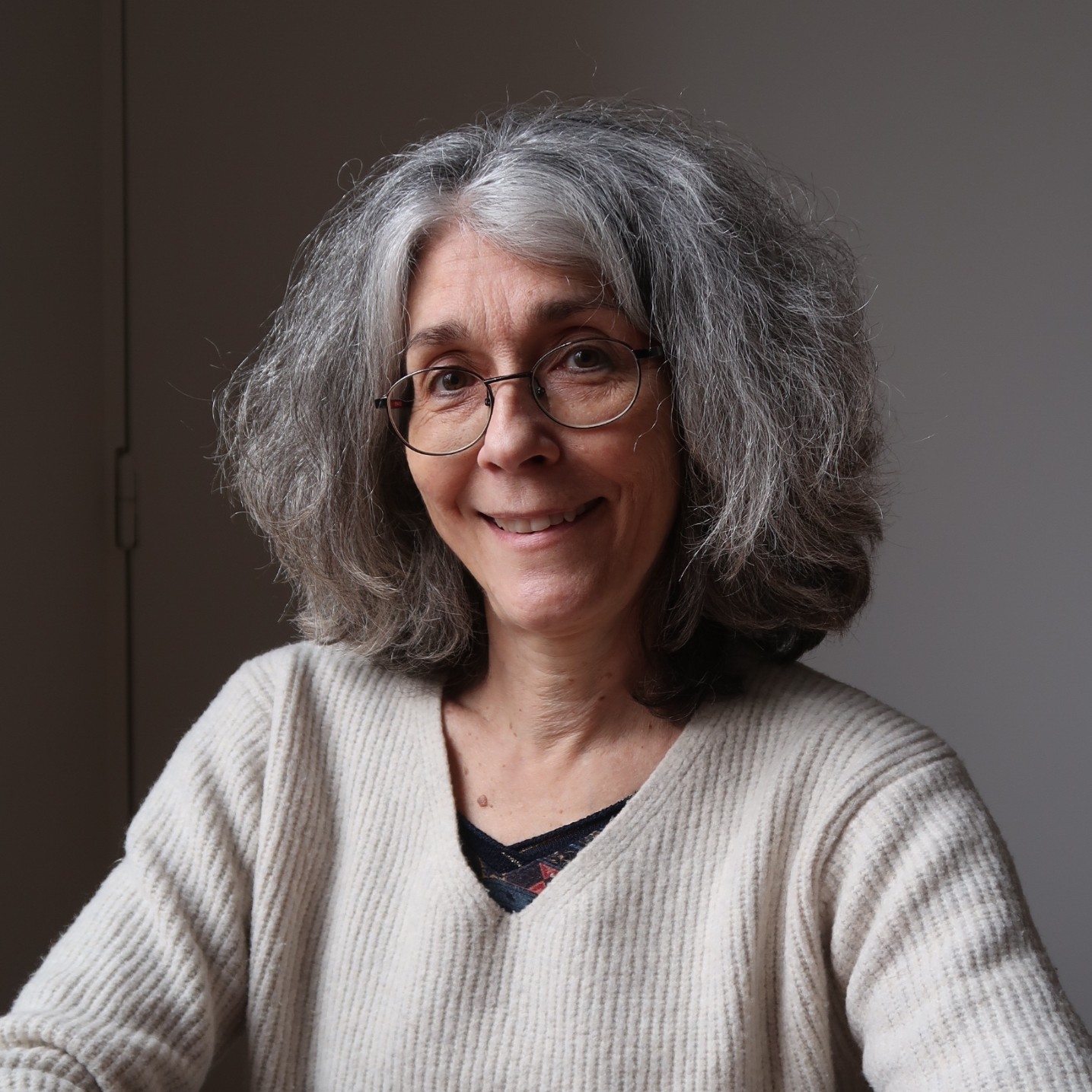
Brigitte Lesne
Centre de musique médiévale de Paris
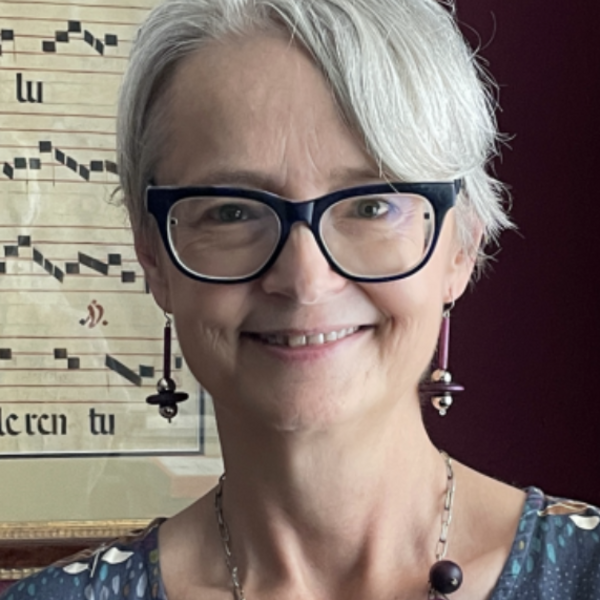
Rebecca Maloy
University of Notre Dame
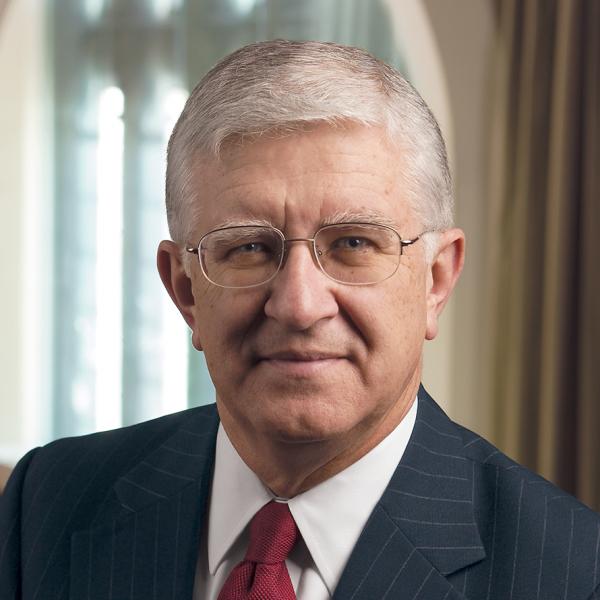
Don Randel
University of Chicago
